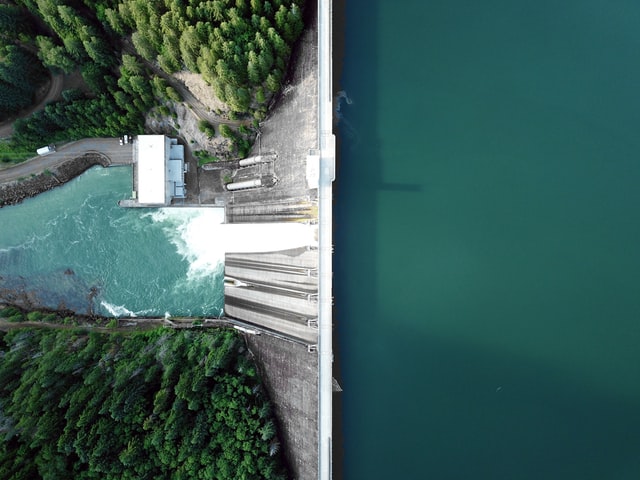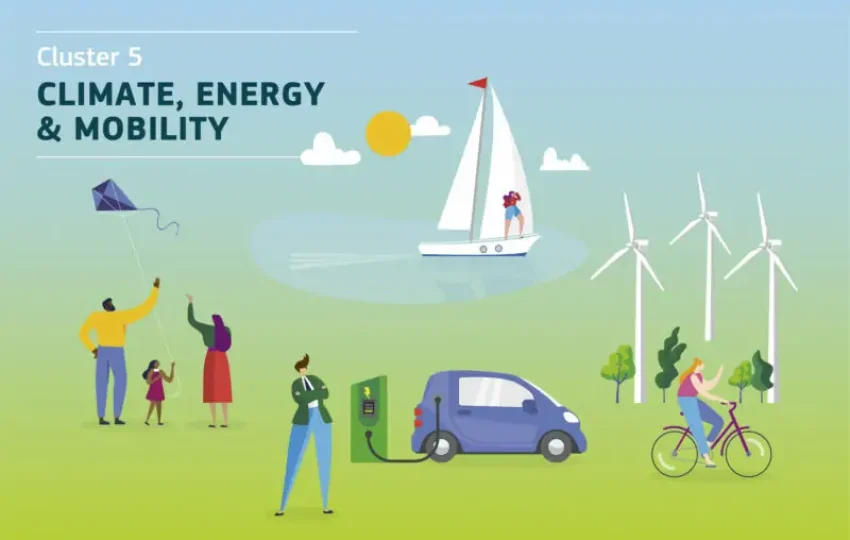While Russia is still waging war in Ukraine and the future of the Russian oil and gas supply is uncertain, the EU needs a backup plan for its energy efficiency. This is embodied in the REPowerEU plan that the European Commission presented on 18 May 2022. This plan responds to the global energy market disruption caused by the Russian invasion with a double aim.
- To stop the EU’s dependence on Russian fossil fuels that costs European taxpayers €100 billion per year
- To tackle the climate crisis.
Further, the REPowerEU plan’s objectives seem to follow what most Europeans believe about our energy dependence on Russia and the war in Ukraine. In this post, we’ll provide the three primary measures of the REPowerEU plan to replace fossil fuels in homes, industry and power generation. In the end, you will find a list of European calls for projects on clean energy.
Why is the REPowerEU plan Important?

Energy is the steam engine of our economies and an enabler of our modern lives. Thus, energy is a commodity that we can’t live without. But, no matter how invaluable energy is, there are values that Europe upholds, like democracy, freedom, and national sovereignty, that go hand in hand with international law.
REPowerEU will help Europe to be on the “right” side of history and become energy independent in the long run. This is an essential step for EU sanctions to work and cripple the Russian economy, thus limiting the capability of Russian aggression and deterring Russia from future hostilities.
But apart from supporting Ukraine, the REPowerEU plan will speed up the transition to a sustainable future with the help of renewables. Giving up on fossil fuels and moving towards renewable energy sources is a prerequisite to achieving the 2030 climate targets and the Green Deal.
The three ambitions of the REPowerEU plan
Energy savings
Energy savings is a simple, cost-effective solution to solve our current energy issues and reduce costs. The Commission wants to increase the long-term energy efficiency measures, including the binding Energy Efficiency Target (EED) under the “Fit for 55” package of the European Green Deal legislation, from 9% to 13%. Saving energy will help us deal with the energy challenges we’ll face in the winter ahead of us.
Specifically, in the Commission’s “EU Save Energy Communication”, there are behavioural tips to reduce gas and oil demand by 5%. Further, it urges EU member states to create communication campaigns aimed at consumers and provide incentives for energy savings. These incentives include lower VAT rates on energy-efficient heating systems, building insulation, and appliances.
Supply diversification
The EU has been working for several months with foreign partners to diversify the supply of LNG imports and gas deliveries. Also, the newly established EU Energy Platform, backed by regional task groups, will enable a “joint buying mechanism” for voluntary common purchases. This will assist gas purchases, LNG, and hydrogen by pooling demand, optimizing infrastructure utilization and coordinating outreach to providers.
The adopted EU External Energy Strategy will assist in energy diversification and establishing partnerships with suppliers on a more long-term basis, including collaboration on hydrogen and other green technologies. The EU’s commitment to green and just energy transition with energy savings and efficiency aims to relieve pressure on prices and boost the development of renewables, hydrogen, and forward energy diplomacy.
Speed up the adoption of renewables
European energy independence is fundamental in the REPowerEU plan. An excellent way to achieve this is through renewable energy sources. This plan seeks a significant scale-up and acceleration of renewable energy in power production, industry, buildings, and transportation. Successful execution of this plan moves Europe closer to energy independence, boosts the green transition, and over time price reductions. The current energy prices forced the Commission to consider raising the target for renewables under the Fit for 55 package from 40% to 45%. This increase will ultimately lead to creating the framework for other initiatives in renewable energy sources like:
- The EU Solar Strategy to double solar power capacity by 2025.
- The Solar Rooftop Initiative that will make obligatory the installation of solar panels on top of new buildings.
- Doubling of heat pump deployment in heating systems.
- Increasing the production and imports of hydrogen by 2030 to replace natural gas
- The Biomethane Action Plan to increase biomethane production to 35bcm by 2030.

Conclusion
The REPowerEU plan is the EU’s response to Russian aggression and an opportunity to realize the green transition sooner. Starting from 2022, REPowerEU will try to make Europe’s energy future less unpredictable and the winter ahead of us less challenging. It will be done by increasing energy savings, diversifying the energy supply, and speeding up the adoption of renewable energy.
Do you have an idea for a project that can assist Europe in becoming energy independent with a focus on renewable energy? Did you know you can receive EU funding to make your project a reality? All you need to do is first identify the European Programmes and then locate the European calls relevant to your project idea. Become an EUcalls member to find the calls below on our database:
- Accelerating deployment and affordability of heat pumps through collective purchase actions and procurement – Deadline: 16/11/2022
- Project Development Assistance for sustainable energy investments – Deadline: 16/11/2022
- Towards a zero-emission building stock: strengthening the enabling framework for deep renovation – Deadline: 16/11/2022
- Developing support mechanisms for energy communities – Deadline 16/11/2022
- Towards an effective implementation of key legislation in the field of sustainable energy – Deadline 16/11/2022
- Mainstreaming sustainable energy investments in the financial sector
- Integrated Home Renovation Services – Deadline 16/11/2022
- Technical support to clean energy transition plans and strategies in municipalities and regions – Deadline 16/11/2022
- Innovative financing schemes for sustainable energy investments– Deadline 16/11/2022
- Supporting the clean energy transition of the business sector – Deadline 16/11/2022
![3 Critical Components of the REPowerEU Plan [+ European Calls]](https://eucalls.net/wp-content/uploads/repowereu-plan.jpg)

